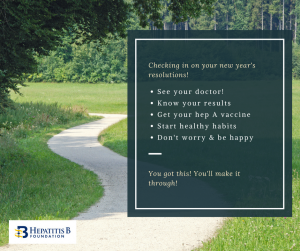
Written By: Soumen B., Silvana L., Partizan M.
Thirteen years ago, I experienced a profound shock. My wife was in the third trimester of her pregnancy, and I was eagerly anticipating fatherhood, filled with plans for our future with the baby. As part of routine procedures, we both were asked to undergo various diagnostic tests. One day, the gynecologist unexpectedly called us in for an urgent meeting. I was asked to wait outside while my wife entered the doctor’s office. When she emerged after half an hour, I noticed a deeply worried expression in her eyes. As I greeted her, she responded with a blank stare, as if the world were crashing down around her.
We returned home in silence, and then she broke down in tears. My wife shared with me that my blood test revealed I was infected with hepatitis B. How could this have entered my body? The doctor told my wife that the disease was terminal and that I might not survive for long. Our world began to crumble. I have always been a respectful and loyal family member with minimal alcohol consumption. How could this happen to me?
The most challenging part was figuring out how to explain this to my wife…
After I was diagnosed, I began online research and reached out to a nonprofit organization (Liver Foundation West Bengal). I gathered information about the disease and accessed health support. I then had an open and candid discussion with my wife, free of embellishments. I explained that I was one of millions affected worldwide and that the disease could have been transmitted through less common means, such as unsterile equipment used during a haircut, like razors, at the salon.* She was extremely cooperative and listened patiently. She also helped me confront the stigma and face the reality of the situation. My wife and I looked up more information so that we could learn about hepatitis B. We talked to our doctors to learn about how we can reduce the risk of transmission and maintain our health. My wife made sure to receive the hepatitis B vaccine, and we made certain that our baby received the vaccine immediately after childbirth.
Later, I took her to meet members of the nonprofit, including experts and other patients, to engage in an open conversation about the disease and its implications. Both my wife and baby are now vaccinated and protected against hepatitis B infection.
* Hepatitis B is highly infectious, and if tools and surfaces are not properly disinfected, it can survive for up to seven days. If you are exposed to hep B from a small wound (like the ones that happen during a short hair cut or shaving with tools that are not sterilized), even the smallest drops of blood from someone living with hepatitis B could cause an infection. Sexual transmission is a primary mode of transmission for hepatitis delta.
Key Questions and Answers from this Story:
If hepatitis B is sexually transmitted, how come my partner isn’t infected?
Hepatitis B virus (and hepatitis delta virus) can be sexually transmitted. The virus is present in an infected person’s blood and bodily fluids commonly exchanged during sexual activity, such as semen and vaginal fluids. There are many reasons your partner might not be positive for hepatitis B after sexual activity including:
- Vaccination status: If your partner has received the full schedule of the hepatitis B vaccine, they are likely protected. The vaccine prompts your body to start producing antibodies that neutralize (attack) the virus. This stops hepatitis B from infecting your body.
- Viral load: The amount of hepatitis B in your blood and bodily fluids—known as the viral load—affects transmission risk. A lower viral load reduces the likelihood of transmitting the virus to your unprotected/unvaccinated partner during sexual contact.
- Type of sexual activity: Different sexual practices carry varying levels of risk. Anal sex poses a higher risk due to potential tissue damage and blood contact. Oral sex is considered “less risky” since it is less likely that there will be blood contact. The presence of cuts or sores can increase one’s risk of infection. It is always a good idea to use protection (latex condoms) when engaging in any form of sexual contact.
- Use of protection: Consistent and correct use of condoms significantly reduces the risk of hepatitis B transmission to your partner by preventing direct contact with infectious fluids. While condoms are crucial in reducing the risk of transmitting hepatitis B (and D) during sex, they do not eliminate the risk completely. New condoms must be used every time you and your partner have sex, from start to finish. Latex or polyurethane condoms are most effective; avoid natural skin (lambskin) condoms, as they are not as good at blocking the virus.
For peace of mind and health assurance, you and your partner should consider:
- Testing: A blood test can determine if your partner has been exposed to hepatitis B or has developed immunity from a previous infection. If they are not protected, they should start the vaccination series.
- If you are living with hepatitis B, it is important to ask your doctor to test you for hepatitis D.
- Vaccination: If a person is not already vaccinated, receiving the hepatitis B vaccine is the only way that one can achieve full protection against the virus.
- There is no vaccine solely for hepatitis D, but since hepatitis D relies on hepatitis B to survive, the vaccine protects against both viruses.
- Discuss your status: If you are starting a new romantic or sexual relationship, you should consider telling your partner about your hepatitis B (or D) status before any sexual encounter. By sharing your status, you not only instill trust in your relationship and build confidence; you and your partner can also take the necessary steps towards reducing your risk of transmitting the virus.
You can read more about tips and tricks about disclosing your status to family members in this blog


